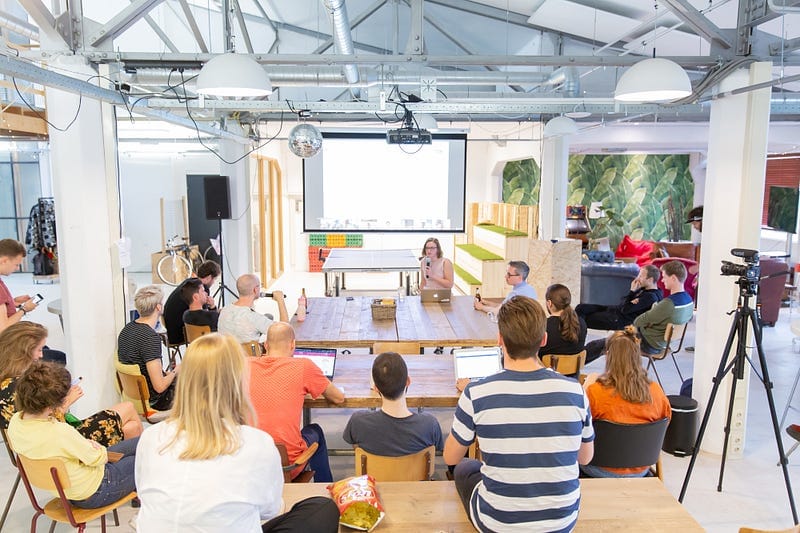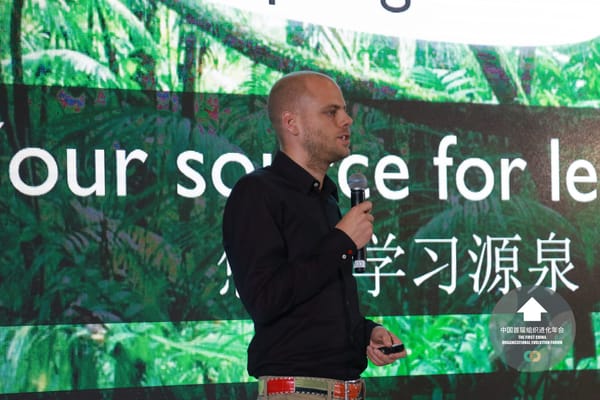The Trusting People Paradox of self-management
A: people can’t be trusted, they always selfishly look out for themselves. B: people can be trusted, we’re wired to altruistically help…

A: people can’t be trusted, they always selfishly look out for themselves.
B: people can be trusted, we’re wired to altruistically help each other out.
What camp are you in?
In the business world we see this divide as well. Employees need constant carrots and sticks to deliver their best work. Or employees will fully benefit the business once you as a founder or manager get out of the way.
Systems of self-management like Sociocracy and Holacracy have grown in popularity in the past decades. This shows that the balance has shifted from factory or even slavery based approaches, to ways or organisation that thrive on autonomy.
These self-management operating systems are built around trusting people. Allowing people to make decisions on budgets, priorities, strategy, and even refuse or take on projects and roles as they see fit. However, self-organisation or self-management does not mean simply throwing out all management. If done properly, it means replacing management with principles, processes and systems that help people manage their own work.
Can we be in both camps?
Maybe you recognise the paradox creeping up on me in the past 15 years:
I ran my company Springest on Holacracy because I don’t trust people.
Why? We’re only a slightly more evolved version of our primate predecessors. Because of this, our Thinking, Fast And Slow brains make us act based on fear. We’re proven bad decision makers, Predictably Irrational at best.
And managers are people too. Good managers can add a lot of value, but they are scarce. And if a good manager has a bad manager above them, you’re still screwed. On top of that, even the good managers have bad days, weeks, months or years. Or they burn out…
I also ran my company on Holacracy because I trust people.
We are wildly creative creatures. We have a lot of energy. We can convince other people of things. We can come up with solutions algorithms still can’t. We inspire other people like no robot does.
These are precious qualities, but if you manage us badly, you’ll kill all of that. If you run us like a machine, we’ll be replaceable by artificial intelligence. But give us more freedom, and we’ll be happier and even more productive than your average bot. Heck, we’ll even figure out which parts of our work actually should be automated!
A paradox of trusting people and dictatorship
This leads us to the Trusting People Paradox: we can be trusted without managers, but can not be trusted without a solid management system around us. To illustrate this, people sometimes asked me if I just replaced my dictatorial founder habits with a rigid system of rules. All so I could keep controlling my employees and the company.
And you know what? Maybe it’s true… except for my dictatorial habits of course! I indeed believe people can’t be trusted in some respects, while they should be fully trusted in others. On top of that, I think that figuring out which elements belong in which category, is the key and art of running an organisation.
This is true on the organisational level, but also at the person, role, and even project level. Skills like empathy and abstraction are sometimes mutually exclusive. One might be important for one role and less for another. Compare a customer service rep with an IT systems architect. The same goes for different types of projects ranging from repetitive to requiring a lot of research.
Designing a system around people
So how can we use the good parts of humans, while diminishing the impact of our built-in weaknesses? Why might self-management be the missing piece of the puzzle here? Because a strict system of rules provides safety.
Safety to be creative, to make mistakes, to test ideas, to evolve based on reality. If you let people manage themselves, there has to be a very clear structure. Their creative energy has to be aligned towards a common goal, because the manager who would otherwise do this, is absent. She’s replaced with a system where purpose flows hierarchically. From the company’s mission to its periodical goals, through teams in projects, to people actually doing tasks feeling they contribute in a meaningful way.
Intelligent design like a God, or use evolution?
The key in designing your organisational operating system is to not design it at all. After all, you are terrible at predicting the future. It’s better to let your system evolve based on what reality throws at it.
But reality tends to change, both within your growing organisation and in markets, technology and society. This friction with reality is called tension in Holacracy-speak. A tension is a specific example of something that needs improvement. The governance process has evolved as an open-source system to help you adjust your system through those tensions every day. Whatever your organisational system of choice, you need to allow for constant evolution without depending on managers to wait for information to reach them.
Maybe we’ve ended up with another paradox here. You need to intelligently design a system that allows for evolving itself. So that those humans can focus on doing what they do best. I guess that’s the art of self-management. Zooming out, that’s exactly what our genes have done for us as a species. As the late Tony Hsieh said: we need to build companies more like societies so that they don’t go extinct. Let’s not do it the other way around. What evolutionary experiment can you start at your company today?

